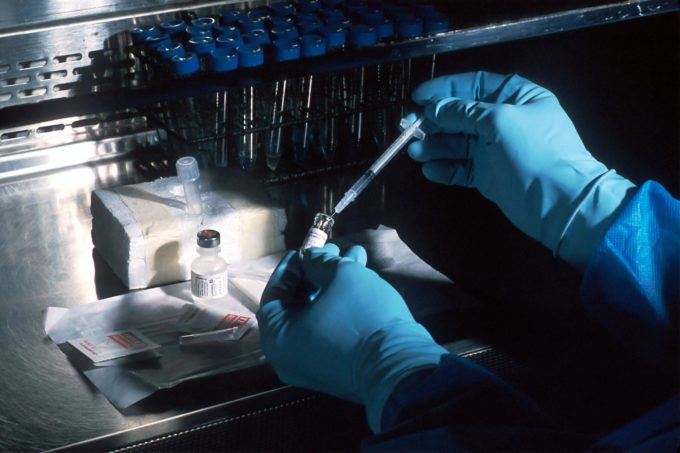Patent Eligibility Restoration Act of 2022, S.4734, 117th Cong. § (2022)
On August 2, 2022, Sen. Thom Thillis (R–NC) introduced bill S.4734, titled the Patent Eligibility Restoration Act of 2022. The Act would modify 35 U.S.C. Section 101, the existing federal statute on patentable inventions, which currently grants patent eligibility for a very broad class of inventions. S.4734 Section 2 rewrites Section 101 by laying out four categories of inventions that are not patent eligible: A) mathematical formulas, B) non-technological, solely mental, or solely natural processes, C) unmodified genes, and D) unmodified natural material.
Proposed Section 101(b)(2) suggests that these exceptions are meant to be read narrowly. Condition (A) makes it clear that the processes delineated in Section 101(B)(i) are still patent eligible if embodied in machinery or manufacturing. Condition (B) defines “unmodified” as it relates to genes and natural material. Material that is isolated, altered, excluded, or used in useful inventions or discoveries would remain patent eligible.
S.4734 arises after several Supreme Court rulings over the past decade have created exceptions to patent eligibility, particularly for biotechnology and pharmaceutical companies. Notable decisions include Mayo Collaborative Clinics v. Prometheus, 566 U.S. 66 (2012), which held that diagnostic tests and procedures failing to sufficiently transform natural processes were not patent eligible, and Ass'n for Molecular Pathology v. Myriad Genetics, 569 U.S. 576 (2013), which drew a line between naturally occurring isolated DNA as patent ineligible and lab-created cDNA as patent eligible.
Following these rulings, some commentators and interest groups expressed concerns that the Court set unclear precedents detrimental to innovation. Kimberly A. Moore, chief judge of the U.S. Court of Appeals for the Federal Circuit, expressed that Federal Circuit judges faced confusion in applying the current patent eligibility provision. S.4734 represents an attempt to address this confusion and increase innovation in the United States through more specific patent eligibility standards. The lack of clarity has led to rejecting patents, which are sometimes rejected only in the U.S. but are granted in similar economies like China and Europe. S.4734 could widen U.S. patent eligibility to be more in line with international standards.
Despite the existing exceptions for unmodified genes and natural materials, S.4734 will likely expand the ability to patent modified genes and pharmaceutical processes. This potential expansion has sparked debate in and around the industry. Members of the American Civil Liberties Union (“ACLU”), which represented plaintiffs in key patent cases like Myriad Genetics, have expressed concerns that the new statute will allow predatory companies to take advantage of patent eligibility and harm efforts to treat health conditions. On the other side of the debate is the newly formed Council of Innovation Promotion (“C4IP”), which includes bipartisan leaders in the intellectual property realm. The C4IP’s stance is that the bill will redress the negative effects of uncertain patent standards and increase investment into critically important diagnostics research and development, which fell by $9.3 billion dollars in the four years after the Mayo decision. Patent eligibility for diagnostic tests could have particular salience in the wake of the COVID-19 pandemic.
Less clear are S.4734’s potential implications for artificial intelligence (“AI”) technology, especially given the lack of jurisprudence around what defines a “technological process.” Currently, the Supreme Court has not yet ruled on a case concerning the patent eligibility of AI, although there have been Federal Circuit cases related to trademark infringement and trade secrets in the context of AI, such as Zaletel v. Prisma Labs, Inc., 226 F.Supp.3d 599 (E.D. Va. 2016) and WeRide Corp. v. Kun Huang, 379 F.Supp.3d 834 (N.D. Cal. 2019). Under the current draft of S.4734, patent eligibility of AI will likely hinge on the interpretation of the terms “technological” and “useful.”
Ultimately, the Patent Eligibility Restoration Act still has a long way to go in Congress, including debates, potential revisions, and a final vote. Proponents hope that Senator Chris Coons’ (D–DE) recently announced co-sponsorship will help the bill gain momentum. And one can expect that industry voices like C4IP and advocacy groups like the ACLU will continue to weigh in. Given the complex and uncertain landscape of patent eligibility in the United States, Sen. Tillis’ bill could benefit business interests and, if its proponents are correct, increase innovation in key industries like biotechnology.
